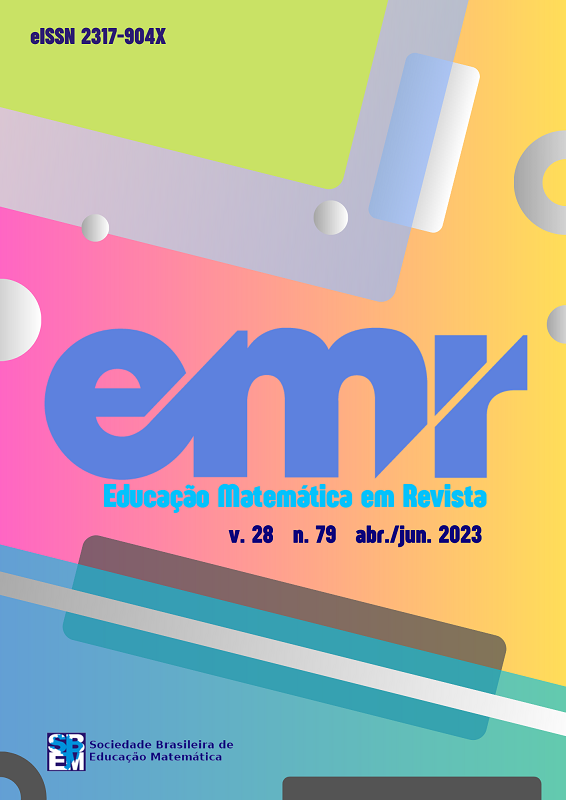Why ?2 is irrational? Seeking explanations in the processes of thought experimentation
DOI:
https://doi.org/10.37001/emr.v28i79.3007Keywords:
Teaching Methodology, Epistemology, Mathematics Education, Cognition, CommensurabilityAbstract
This article is one of the results of the theoretical research entitled The Thought Experiments as Alternative Methodology for the teaching of Mathematics. The intention of this text is to present an epistemological discussion about the idea of irrational numbers, highlighting In this context, we present the Thought Experiments as a possible alternative methodology for the teaching of Mathematics, helping the debate and raising contradictions and possibilities in the exploration of the theme. These experiments are ways of exposing thoughts by means of representations, as an object of consideration in a given mathematical activity and/or proof, using a well-defined theoretical context. Such experiments are only possible to be applied to the teaching of this science, if we consider that Mathematics is a semiotic activity that builds diagrams, experiments in these diagrams, and verifies the possible results.
Downloads
References
BONGIOVANNI, V. As duas maiores contribuições de Eudoxo de Cnido: a teoria das proporções e o método da exaustão. UNIÓN. Revista Iberoamericana de Educación Matemática, España, v.1, n. 2, p. 91-110, 2005.
COURANT, R.; ROBBINS, H. O que é matemática? Rio de Janeiro: Editora Ciência Moderna Ltda, 2000.
CRUZ, W. J. Experimentos Mentais na Educação Matemática: uma analogia com provas matemática formais. Curitiba: Editora Appris, 2018.
CRUZ, W. J. O uso dos Experimentos Mentais como possÃvel metodologia de ensino da matemática: um olhar epistemológico. Revista Eletrônica de Educação Matemática – REVEMAT, Florianópolis, v.16 p. 01 – 26, 2021.
D’AMBROSIO, U. Educação para uma sociedade em transição. Natal RN: EDUFRN, 2011.
EUCLIDES. Os elementos. São Paulo: Editora da UNESP, 2009.
GALILEU, G. Diálogo sobre os dois máximos sistemas do mundo ptolomaico e copernicano. São Paulo: Associação Filosófica Scientiae Studia: Editora 34, 2011.
HERSH, R. What is mathematics, really? Oxford: Oxford University Press, 1997.
IGLIORI, S. B. C. Considerações sobre o ensino de cálculo e um estudo sobre números reais. In: FROTA, M. C. R.; NASSER, L. (Orgs.). Educação Matemática no Ensino Superior: pesquisas e debates. Recife, SBEM, 2009, p. 11 - 26.
IGLIORI, S. B. C.; FONSECA, R. F. Reflexões sobre a teoria de Conway no ensino e na aprendizagem dos números reais. In: FROTA, M. C. R.; BIANCHINI, B. L.; CARVALHO, A. M. F. T. (Orgs.). Marcas da Educação Matemática no ensino superior. Campinas, SP: Papirus, 2013, p. 165 – 185.
MANFREDI, S. M. Metodologia de Ensino-diferentes concepções (versão preliminar). Campinas: F.E./UNICAMP, 1993.
OTTE, M. A realidade das ideias: uma perspectiva epistemológica para a educação matemática. Cuiabá: EdUFMT, 2012.
SILVA, J. J. Filosofias da matemática. São Paulo: Editora UNESP, 2007.
Published
How to Cite
Issue
Section

This work is licensed under a Creative Commons Attribution-NonCommercial-ShareAlike 4.0 International License.






